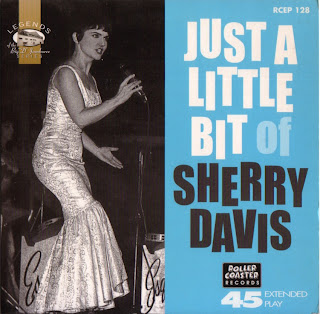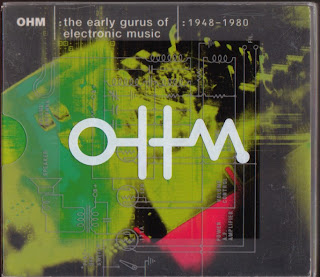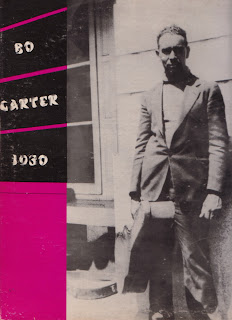
Another fine sampler of bands who played Japan Nite during SXSW in 1998. These CDs were never released for sale but given away at SXSW events as promotionals for the bands who played at Japan Nite. Eventually, Japan Nite became so popular that a second event titled Japan Not For Sale had to be started as a result of the deluge of Japanese bands who wanted to perform during that week of insanity in Austin, Texas.

Tengoku Jack: They are drastic rock band from Japan! The literal translation of the band name is "Highjacking of Heaven." Two of the members of this band went on to form Noh-Suspend. They played a gig in Seattle about two years ago. More posts from these guys later as they provided some free music as gifts back in the late '90s. Their stuff can still be found in used bins in Texas despite the internet's complete erasure of their presence from the face of the earth.

The Kokessies: This band ended up breaking up in 2003 it seems. They had toured quite a bit from 1999 until the demise of the band. At this point, they splintered into two different groups: Pigeons and MAGO. Very cute gals playing very cute music. They actually rapped on stage.

O*N*T*J: Avant lounge music put together by Japan's best dressed transvestite keyboardist/band leader.

Balbora: Named after the famed film character Rocky Balboa, this band has actually played gigs at CBGB's. Crazy mixture of swing, punk, funk, blues, grunge, doom, and God knows what else. These guys kick ass and they don't quit!

Cocco: Cocco actually played the Japan Nite gig the year this sampler came out. Her performance is so emotional that the rawness of the sensation that she generates on stage reaches right out and touches you.

The emotional honesty of her presence in the band is unlike anything that you will ever experience. She actually had to have her own bouncers to protect her from the hordes of would-be suitors and fanatical teenage Japanese-American girls. She doesn't really do any recording on her own anymore but she has been involved in side projects alongside other Japanese musicians.

Zoobombs: Here's a fucking crazy blender-full of genres wrapped up into one crumpled package- swaddled in funk, the blues, rock, and rap music. Who cares if they had to speak in English from a cue card? These guys and gal really knew how to work the crowd into a frenzy!

Smile Like Dog: This band had one album release on Benten Records and appeared on quite a few compilations. Since there aren't any photographs of them anywhere, they are shrouded in mystery. Their music is in the same vein as O*N*T*J and has been described as ""Pizzicato Five meets Violent Onsen Geisha." They combine a manic techno beat with Polysics-like synthesizer effects and banjo and then in the next song will throw in a few profanities accompanied by ukeleles and Hawaiian steel guitar. You've gotta hear it to believe it! Unfortunately, they have completely disappeared without a follow up band to track them down.

Riyu Konaka: Riyu Konaka spent her childhood in Chicago and New York and became heavily involved in music after returning to Japan in her junior high school years. This engendered within her an appreciation for the cultural diversity in her American classes and the need for this type of social diversity always rang in her mind as she grew older. She is not only a singer but poet/comedienne as well and enjoys writing lyrics and poetry in different languages.

Petty Booka: Listen to their famous rendition of Madonna's Material Girl right here on this compilation. You haven't heard American pop until you've heard it performed by a Japanese duet playing it on ukuleles.
Editing note: Did you know that the word
ukulele has two spellings? Look it up!

Finally.... here's the CD!

 The Revolutionary Ensemble was a music cooperative of three individuals who sought to combine the most unlikely of elements within their musical approach. Shying away from the overused jazz instrumentation that required a saxophone, they consisted of merely a violin, stand up bass, and a percussionist. Replacing a mere beat with that of a pulse displayed a group schooled in the classical; there was a playful interaction that occurred between the violin and the bass that left plenty of wangling room for the improvisational sense of Jenkins' violin-playing.
The Revolutionary Ensemble was a music cooperative of three individuals who sought to combine the most unlikely of elements within their musical approach. Shying away from the overused jazz instrumentation that required a saxophone, they consisted of merely a violin, stand up bass, and a percussionist. Replacing a mere beat with that of a pulse displayed a group schooled in the classical; there was a playful interaction that occurred between the violin and the bass that left plenty of wangling room for the improvisational sense of Jenkins' violin-playing.  The band was quite popular in the 1970s and considered to be an indispensible element within the free jazz continuum. Leroy Jenkins had once performed with Anthony Braxton and this past association led him to experiment with new textures of sound in instrumentation used in the jazz context. He was considered to be the father of the free jazz violin. Sirone had performed with Pharoah Sanders and Gato Barbieri. While Jerome Cooper had recently played with Rahsaan Roland Kirk.
The band was quite popular in the 1970s and considered to be an indispensible element within the free jazz continuum. Leroy Jenkins had once performed with Anthony Braxton and this past association led him to experiment with new textures of sound in instrumentation used in the jazz context. He was considered to be the father of the free jazz violin. Sirone had performed with Pharoah Sanders and Gato Barbieri. While Jerome Cooper had recently played with Rahsaan Roland Kirk.  They got back together again in 2004 and their first performance was still staggering to behold. For an account of the performance, click here. Unfortunately, the death of Jenkins in February 2007 prevented any further work from being recorded. The last album released was recorded in 2004. Check it out here.
They got back together again in 2004 and their first performance was still staggering to behold. For an account of the performance, click here. Unfortunately, the death of Jenkins in February 2007 prevented any further work from being recorded. The last album released was recorded in 2004. Check it out here.














































